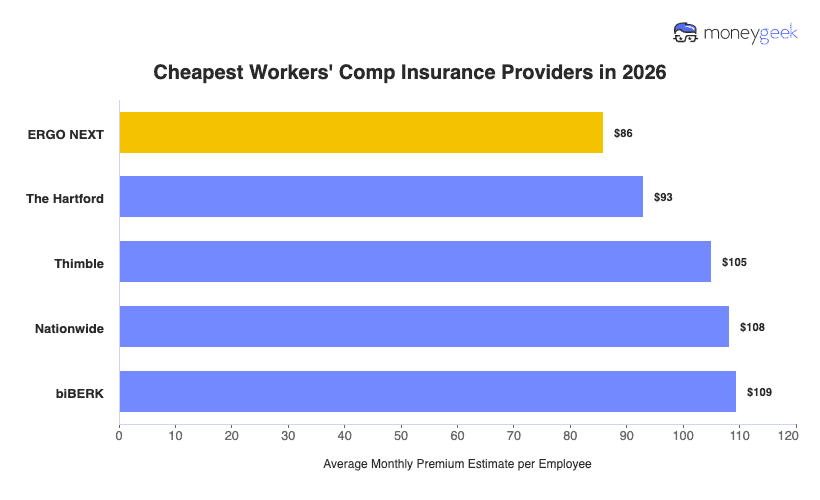These five insurers offer the lowest worker's comp rates most often across our dataset:
- ERGO NEXT: Most often cheapest for hands-on service businesses, retail operations and food establishments (cleaning services, beauty salons, retail shops, restaurants)
- The Hartford: Usually most affordable for office-based professional services, technology companies and healthcare practices (financial services, consulting, tech startups, medical offices)
- Thimble: Usually cheapest for construction contractors, installation services and outdoor work (welding, carpentry, fence installation, tree surgeons)
- biBERK: Typically cheapest for fitness venues, recreation businesses and specialty food operations (CrossFit gyms, amusement parks, coffee shops, butcher shops)
- Nationwide: Usually cheapest for farming operations, light manufacturing and community organizations (dairy farms, bakery manufacturing, community centers, homeless shelters)
>> [Click on Each Provider to Learn More]
The cheapest workers’ compensation insurance option for your business depends on what you do, where you operate and the number of employees you have (if any). Use these five companies as your comparison starting point.











